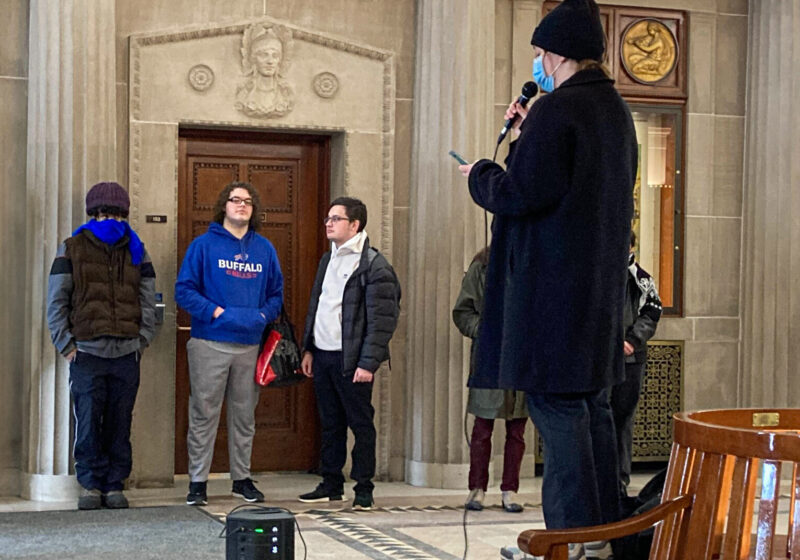Since the 1800s, not long after the creation of UR, fraternities and other social groups have lived in specially designated housing. As most students on campus live in dorms with little social infrastructure, the appeal of floors and houses with a group of friends is obvious. Unfortunately, the demand for such opportunities outweighs the supply.
In the move to River Campus in the 1930s, fraternities were able to build their own autonomous houses separate from the University while still maintaining their presence on campus. In the 1970s, to avoid a series of tax payments, the fraternities began selling their houses to UR.
Nowadays, important distinctions exist between the fraternity houses on campus and the academic living centers or the special interest floors.
Fraternities Delta Kappa Epsilon, Alpha Delta Phi, Psi Upsilon, Sigma Chi, Theta Chi, and Sigma Alpha Mu have their own houses on campus. The University owns these houses, and only brothers from the fraternity can apply to live in their respective house. Additionally, each fraternity retains control over their house perpetually unless a dispute arises between the fraternity and the University.
The other residences on the Fraternity Quadrangle, the Drama House, Douglass Leadership House, and Sigma Phi Epsilon, are termed Academic Living Centers (ALC). Residents in an ALC are required to undergo a petition process every few years to continue living in their house. Other organizations are allowed to compete for the house, and ownership occasionally turns over. As of this year, graduate housing assistants live within both the fraternity houses and the ALC’s.
A recent example of a fraternity losing its house is the case of Alpha Delta Phi in the 2010-11 academic year. Delta Upsilon recently lost their housing as well, however they had been living in an ALC. Next year, Alpha Delta Phi will be returning to campus and taking control of their house once again.
“I can come home from class, and there will almost always be someone sitting in the lounge to talk with,” Computer Interest Floor’s (CIF) Dena Rothman said. “Having a semi-private kitchen is also a huge plus.”
President of Greenspace and sophomore Brittany Flitner described how special interest housing offers an opportunity for students to live together.
“[One can] learn from those students, and create friendships. It creates a welcoming environment for students to participate in groups of like-minded peers,” she said.
For floors such as Greenspace and CIF, they’re expected to meet certain standards to maintain their housing. Every year, groups have to fill out Expectations for Excellence forms and present to a board of ResLife staff to prove the organization is accomplishing its mission. Additionally, the organization must maintain occupancy and fill all open spots on the floor.
Despite the perks of special interest housing, there are occasional drawbacks, President of Delta Gamma and junior Natalie Karafiol explained.
“The one drawback is packing up our furniture and carpeting for summer storage,” she said. “This is not only an expensive process, but also a hassle for those responsible [for moving] out.”
Other than the hassle of moving out at the end of the year, there are occasional flare-ups or issues amongst those who live together. Most organizations are equipped to deal with such social issues, though.
Special interest housing contributes a unique element to UR residential life as they work to put on events throughout campus. Furthermore, it creates opportunities for individuals to explore their interests and do so in a supporting environment of those who are equally involved.
Smith is a member of the class of 2014.



